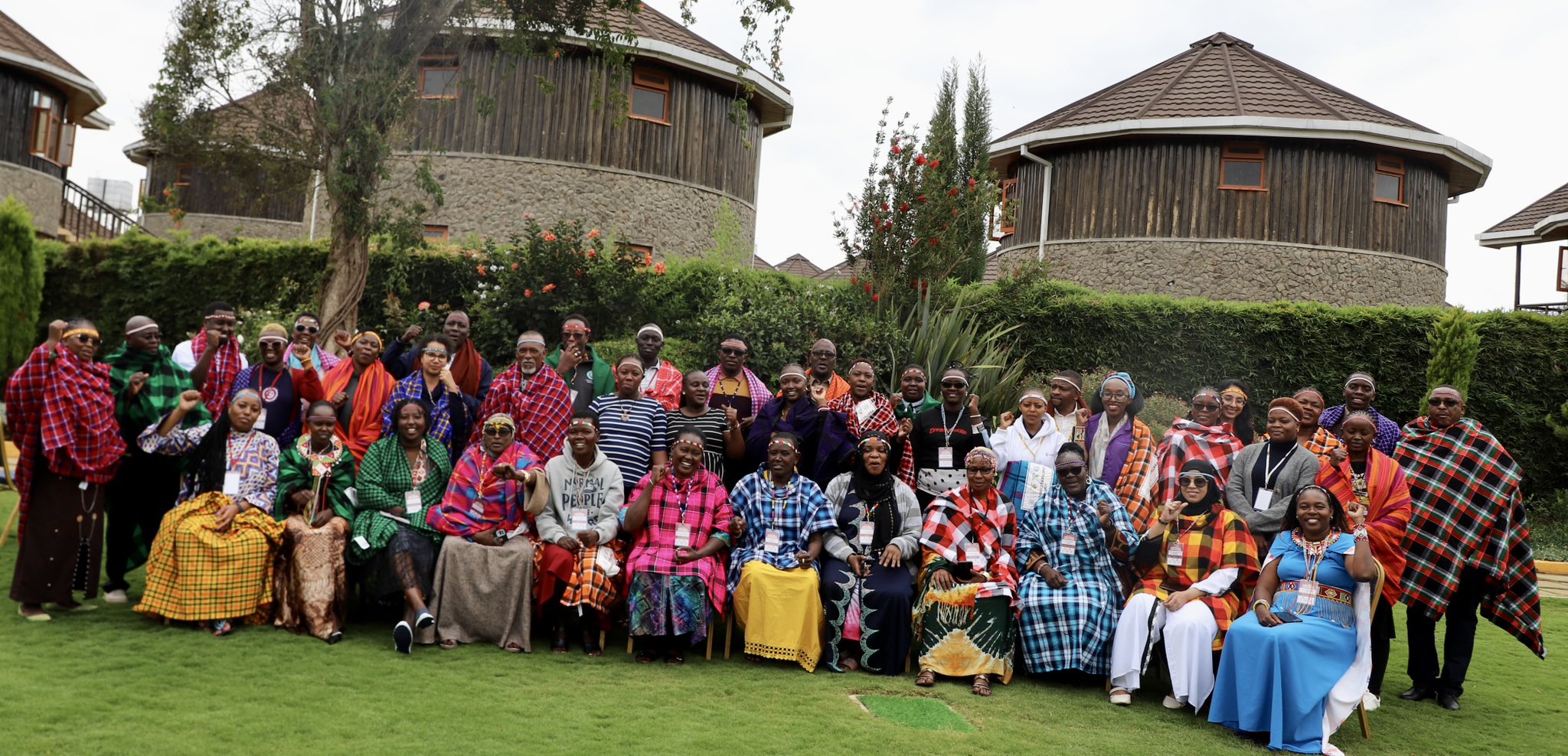 Members of 14 community organization under AJWS during a meeting in a hotel in Nanyuki on August 5, 2025
Members of 14 community organization under AJWS during a meeting in a hotel in Nanyuki on August 5, 2025Convening in Nanyuki on Tuesday ahead of the Annual National Indigenous Women Conference, the call for unity dominated the meeting, with participants resolving to form stronger coalitions to help overcome the challenges they face.
These problems include
marginalisation, climate change, land tenure rights and ownership, lack of
access to natural resources and exclusion from political processes.
Jane Meriwas, executive
director of hosts Samburu Women Trust particularly noted that
indigenous groups majorly fail to get funding because of having communication
breakdown and being fragmented.
“If we the Indigenous
communities join forces, one, we will be able to share available funding
opportunities and, two, joining efforts and applying funding collectively. Some
funders will tend to fund a consortium of groups rather than individual groups.
“Uniting will
help us have the numbers needed to be heard. If a community is being evicted, we
should stand in solidarity with them. If a community is being displaced by
floods, we should organise ourselves and help them, “ Meriwas said.
The two day-meeting
was a curtain raiser for the 10th Anniversary of the Indigenous Women Council
(IWC), an event that will from
Thursday celebrate a decade of “impactful work, collective resilience, and a
unified voice” championing the rights of indigenous women and girls across East
Africa.
It brought
together grassroots organisations funded and supported by the American Jewish World
Service (AJWS), which is also celebrating 40 years of human rights work.
IWC was
established in 2015, culminating from lived experiences, suffering the cost of
marginalization, and needs by rural indigenous women, Meriwas noted.
In coming
together, the women share their indigenous knowledge, celebrate one another,
and joint collective action towards self-determination and representation.
“The Council has played a pivotal role in advancing women leadership through solidity, and joint action, promote inclusion and protecting collective voice of pastoralists, hunter gatherers, fisherfolks, women with disabilities, young women, and adolescent girls.
"This has been through facilitating, influencing their
participation at the local, county, national, regional and international
process that impact indigenous women constituency,’ she added.
The groups are
drawn from across the country, with each sharing unique and common challenges
they face.
Those from Lamu,
Kitui and Marsabit counties highlighted land injustices as their main challenge,
while those from around Lake Turkana, Lake Bogoria and Lake Baringo say they
have become climate refugees due to the rising water due to climate change
impacts.
In Lamu, for
example, it had to take the initiative of local communities supported by other
human rights groups to stop the establishment of a coal plant in the region.
Through the pressure sustained by Save Lamu, the National Environmental Tribunal in June 2019 stopped the Chinese-funded project due to insufficient environmental impact assessments and lack of public awareness about potential health effects.
A lawsuit by local communities and
environmental activists also led to the suspension of the project's permit.
Other indigenous
communities decried frustrations in their push for recognition and registration
by the government.
Kenya Indigenous Youth
Network urged the elders to absorb the young generation in leadership to ensure
continuity of the struggle for their rights and their culture.
The indigenous
and minority communities regretted that often, their rights are traded for
money and the majority’s interest. This is partly attributed to deficiency of
numbers, a factor that contributes to lack of political good will in
safeguarding their interests and rights in land allocation, job opportunities
and equality.
Ogiek, for
instance, have decried brutal evictions from the Mau Complex — which they
consider their ancestral home — despite an existing ruling by the Africa Court
Justice that the government should resettle them in the forest, the judgment is
yet to be implemented.
Various initiatives spearheaded by local and international organizations are in place to ensure that the future generation lives to enjoy their rights and privileges.















